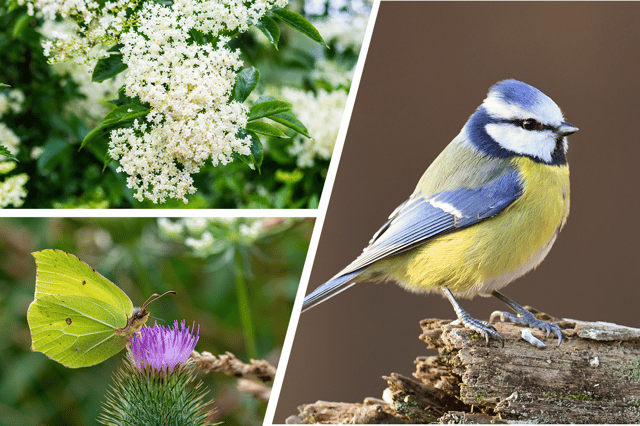Woodland Trust: The first signs of spring are 'creeping forward' by weeks at a time in UK


The changing climate is causing leaves to sprout from bare winter branches and butterflies to return weeks earlier than they did in years past - and it risks throwing food chains out of sync.
The Woodland Trust has released new data from its Nature's Calendar citizen science project team, which record the changing seasons all across the UK. For the last five years, its records show that elder trees - usually one of the very first to grow new leaves after winter - have been leafing four to 16 days earlier than the 20-year average, with 2024 already appearing to follow suit.
Advertisement
Hide AdAdvertisement
Hide AdLarch, rowan, and oak trees have also been seen sprouting one to two weeks earlier than average, while there have already been sightings of brimstone butterflies - traditionally one of the first to be spotted each year - about two weeks earlier than usual. Dr Judith Garforth, the Trust's citizen science officer, said she first recorded elders beginning to leaf on 20 February in North Yorkshire this year.
"Whilst the sighting of an elder in leaf was a very welcome glimmer of spring after all the grim wet weather, it was much earlier than I’d expect, especially this far north," she said. "Overall though, the general trend is continuing with spring arriving earlier and becoming something like the new norm."
These early signs of spring were no surprise this year, the Trust said, as Met Office data showed temperatures in February were 2.2C above average - making it the warmest February on record for England and Wales. However, Dr Garforth said that while an earlier end to winter might seem nice, it could lead to ecological food chains becoming 'mismatched' - or out of sync.
A 2018 University of Exeter study published in Nature Ecology and Evolution - which used the Nature’s Calendar oak leafing data - showed that early oak leafing lead to an earlier peak in the number of moth caterpillars, which meant that blue tits needed to match their breeding timing so that their chicks were at their hungriest when caterpillar numbers were at their highest.
Advertisement
Hide AdAdvertisement
Hide AdHowever, the study found that the blue tits could not react as quickly to the early spring temperatures as the trees and moths. This meant the chicks were born later, had less food available, and there was less breeding success.
"Our data provides the clearest evidence of a changing climate affecting wildlife," Dr Garforth continued. "Another example is that we sometimes see insects emerging early in the spring before there are many flowers blooming to provide a good food source for them. Change has happened very quickly which is why the best option to help wildlife would be to slow it down - by reducing carbon dioxide emissions and by planting more trees."
The Woodland Trust is also calling for more volunteers to become citizen scientists for Nature's Calendar, to keep its 300-year-old recording tradition alive. "We must continue to monitor this ever-important data we receive to keep tracking nature’s response," she added.
Comment Guidelines
National World encourages reader discussion on our stories. User feedback, insights and back-and-forth exchanges add a rich layer of context to reporting. Please review our Community Guidelines before commenting.
